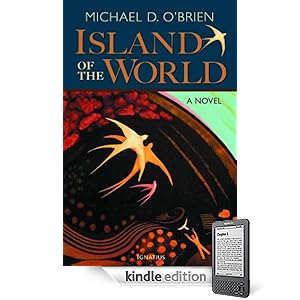Howards End is on the Landing, by Susan Hill
The full title of this book is actually Howards End is on the Landing: A Year of Reading From Home. I actually love the title of this book, but I'm not sure I can articulate the reasons. Howards End is a book I have read only recently (within the past 3-4 years), and it made a powerful impression on me. Then the title is both evocative and enigmatic, and it is long--so blatantly different from the short, punchy titles popular with modern novelists (The Road, Twilight, The Notebook, Freedom, and so forth).
It's not a thing I do very often anymore, but if I were browsing in the stacks of the library, this title would make me pull the book off the shelf and investigate further. And it would repay my effort for doing so.
 One autumn day, the author was looking for a book in her home. There were a lot of bookshelves, in a lot of different rooms, and tucked into nooks and crannies such as landings. (I have books on my landings, too.)
One autumn day, the author was looking for a book in her home. There were a lot of bookshelves, in a lot of different rooms, and tucked into nooks and crannies such as landings. (I have books on my landings, too.)
Surrounded by all those books, which were her own possessions, but also "old friends," she decided somewhat impulsively to spend an entire year reading only from her home library, which meant, for the most part, only rereading, and not reading anything she had not read before. (She made a few exceptions, connected with her professional obligations.)
This book is partly the story of that year, but mostly it is sort of bookish memoir, looking back at people, places, and books that made up her reading life across many decades. Looking back, and thinking over all the books she has read, it occurs to her how unlikely it is that there are two people living who have read exactly the same books, and only those books.
So just as my genes and the soul within me make me uniquely me, so I am the unique sum of the books I have read. I am my literary DNA.
I have not hurried through this book, and it has been a pleasure to glimpse the literary soul of someone as well-read as Susan Hill. I could not read this book without frantically making lists of authors I never heard of (how did that happen?) and particular books by authors I have heard of that I must read, immediately, right now, so I can enjoy them as much as Susan did. I know that we are kindred reading spirits, because of all Dicken's novels, she did not care for A Tale of Two Cities. I think I'll stop feeling guilty about finding it my least favorite of all I've read so far.
Ms. Hill doesn't have much use for electronic readers, and has some rather bitter things to say about them. I only found this amusing, because I was reading the Kindle version of the book. I love physical books for many reasons, but I love my Kindle, too. Just think--I can download every single Thomas Hardy title she recommends most highly, and I won't have to find space on those already-full bookshelves to house them. She also warns:
The internet can also have a pernicious influence of reading because it is full of book-related gossip and chatter on which it is fatally easy to waste time that should be spent actually paying close, careful attention to the books themselves, whether writing them or reading them.
So here I am, contributing to the noise by telling you about this book. But there it is. We live in a world of contradictions. The internet takes up too much time away from books, but without it, I probably wouldn't have heard about this book at all (I've never seen a real-life copy), nor read it, nor told you about it. I'll stop now, and let you get back to your library, literal and virtual.


